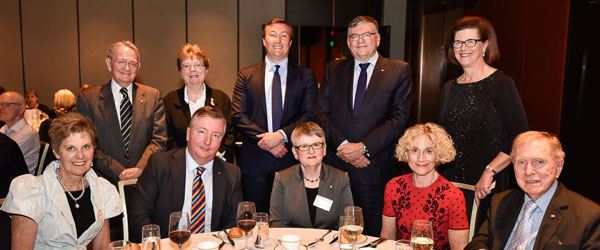Welcome to the Australian Academy of Law |
The Australian Academy of Law comprises elected individuals of exceptional distinction in the discipline of law who are committed to the advancement of that discipline and to justice according to law in Australia. Membership is by invitation by the Board of Directors following nomination by an existing Fellow, together with a Seconder, and consideration and recommendation by the Membership Committee. Fellows are invited from the practising profession, from legal academia and from the judiciary to facilitate collaboration and constructive debate amongst all sections of the legal community. The Academy thereby provides a bridge between all sections of the legal community. The objects of the Academy are to:
| It is important that Fellows consider from time to time other distinguished lawyers who are suitable for nomination as a Fellow. The eligibility criteria are that the person is of exceptional distinction in the discipline of law and demonstrably committed to the objects of the Academy. All Fellows are encouraged to look broadly to nominate candidates and to consider candidates from diverse backgrounds. Nominations should be forwarded to the AAL Secretariat by 31 August each year. Further information can be accessed here and the Nomination form can be found here. The AAL expects to elect new Fellows by the end of each calendar year. The AAL's 2024 annual report has now been published and is to be found here. |
Publication of the proceedings of the joint eventwith the AIJA and the ALJ:Enduring Courts in Changing Times
The AAL has now, with the excellent work of Dr Trischa Mann, edited the papers for publication in book form. BOOK LAUNCH The book was launched by The Hon Tom Bathurst AC KC, the former Chief Justice of New South Wales, and The Hon Chief Justice Alan Blow AO, the Chief Justice of Tasmania on Tuesday 16 July 2024. |
Newsletter No 628 June 2025 The latest Newsletter of the Academy can be viewed by clicking below:View latest newsletter |
LATEST NEWS AND EVENTS |
Australian Academy of Law
The Australian Academy of Law again offered the Australian Academy of Law First Nations Scholarship tenable in 2025 for a First Nations final year law student.
| Australian Academy of Law
| Australian Academy of Law
|






